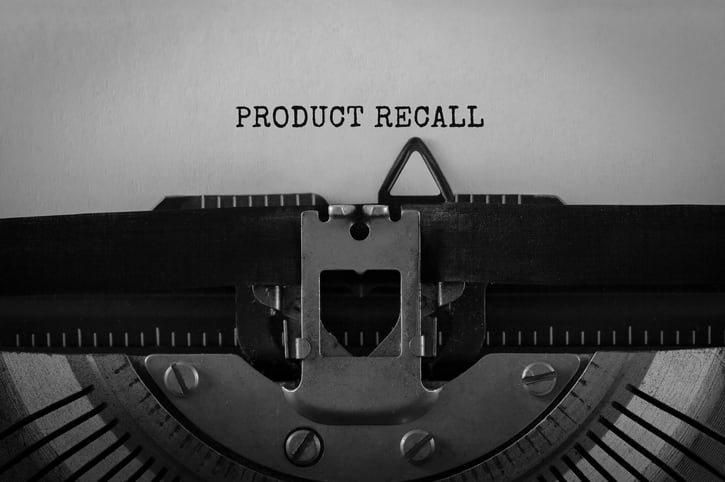Regulators want to overhaul allergen labelling regulations with the aim of giving consumers more information on what is in the food they buy. An estimated two million people in the UK suffer from food allergies and the government said it wanted to provide these people with greater confidence that the food they are eating is safe.
Under current rules, food prepared on the premise where it is sold is not required to display allergen information on pack. When a food business sells prepacked food for direct sale the same regulations apply as to non-prepacked food under the EU Food Information for Consumers Regulation No. 1169/2011, commonly known as EU FIR 2014. This means food businesses preparing their products freshly on site are exempted from the obligation of labelling them with a list of ingredients.
At the moment, for food prepared and sold at the same site information on allergens is required to be verbally given by the food business if asked by the consumer.
According to the FSA, there are 14 major allergens that should be flagged when used as an ingredient in food.
- Celery
- Cereals containing gluten
- Crustaceans
- Eggs
- Fish
- Lupin
- Milk
- Molluscs
- Mustard
- Nuts
- Peanuts
- Sesame seeds
- Soya
- Sulphur dioxide
The risks associated with this policy were highlighted by the tragic death of Natasha Ednan-Laperouse, a teenager who suffered an allergic reaction to a Pret a Manger baguette in July 2016. The coroner who presided over her inquest concluded that the current legislation is not adequate and requested a review.
Environment Secretary Michael Gove launched a consultation on proposed changes earlier this week.
“We want to ensure that labels are clearer and that the rules for businesses are more consistent – so that allergy sufferers in this country can have confidence in the safety of their food,” he said.
Paying tribute to the Ednan-Laperouse family, Gove acknowledged that “many businesses” are making changes to their allergen labelling independently. He urged them to continue to make progress on this issue while the consultation process is underway.
Four options on the table
The Department of Environment, Food and Rural Affairs (Defra) outlined four proposals to update the system. These range from mandating full ingredient list labelling, to allergen-only labelling on food packaging, ‘ask the staff’ labels with supporting information available in writing and “promoting best practice” around communicating allergen labelling.
Food businesses and allergy sufferers have been invited to have their say on the four options put forward.
“It’s essential for those of us with a food allergy or intolerance to know that we can trust the food we eat. Accurate and reliable labelling is vital, and this consultation is firmly aimed at improving the confidence we have in it,” Food Standards Agency Chairman Heather Hancock said.
“In recent years choice, trust and availability has really improved for people with food allergy. We want those improvements to continue, so it’s important that we hear from everyone affected, as part of this consultation.”
‘Do more than the bare minimum’
The consultation has been welcomed by organisations representing allergy sufferers, including Allergy UK and the Anaphylaxis Campaign.
According to the European Academy of Allergy and Clinical Immunology (EAACI), 150 million Europeans suffer from chronic allergic diseases and the current prediction is that by 2025 half of the entire EU population will be affected.
Mintel data suggests 44% of UK adults suffer from at least one allergy.
Reactions can range from eczema and asthma to Anaphylaxis, which can be life threatening.
In a statement, the Anaphylaxis Campaign said it hoped both allergy sufferers and food businesses would participate in the consultation, stressing the need to find a workable solution for all stakeholders.
“The Anaphylaxis Campaign believes that food allergic individuals must be able to make informed decisions and to assess risk and self-manage their condition when eating out. We welcome the government’s consultation as a way of understanding the views of all stakeholders and arriving at the best approach for all stakeholders and, in particular, those who suffer with food allergies. We hope all food business that sell food pre-packed for direct sale engage with this consultation to ensure that feasibility across all business sizes is taken into consideration,” the organisation said.
Meanwhile Carla Jones, the CEO of Allergy UK, called on businesses to do more to ensure allergen information is clearly communicated.
“At Allergy UK we believe that whilst those living with allergies must be vigilant on their own behalf, the broader food industry needs to do more than just the bare minimum when it comes to catering for the allergic community,” she stressed.


